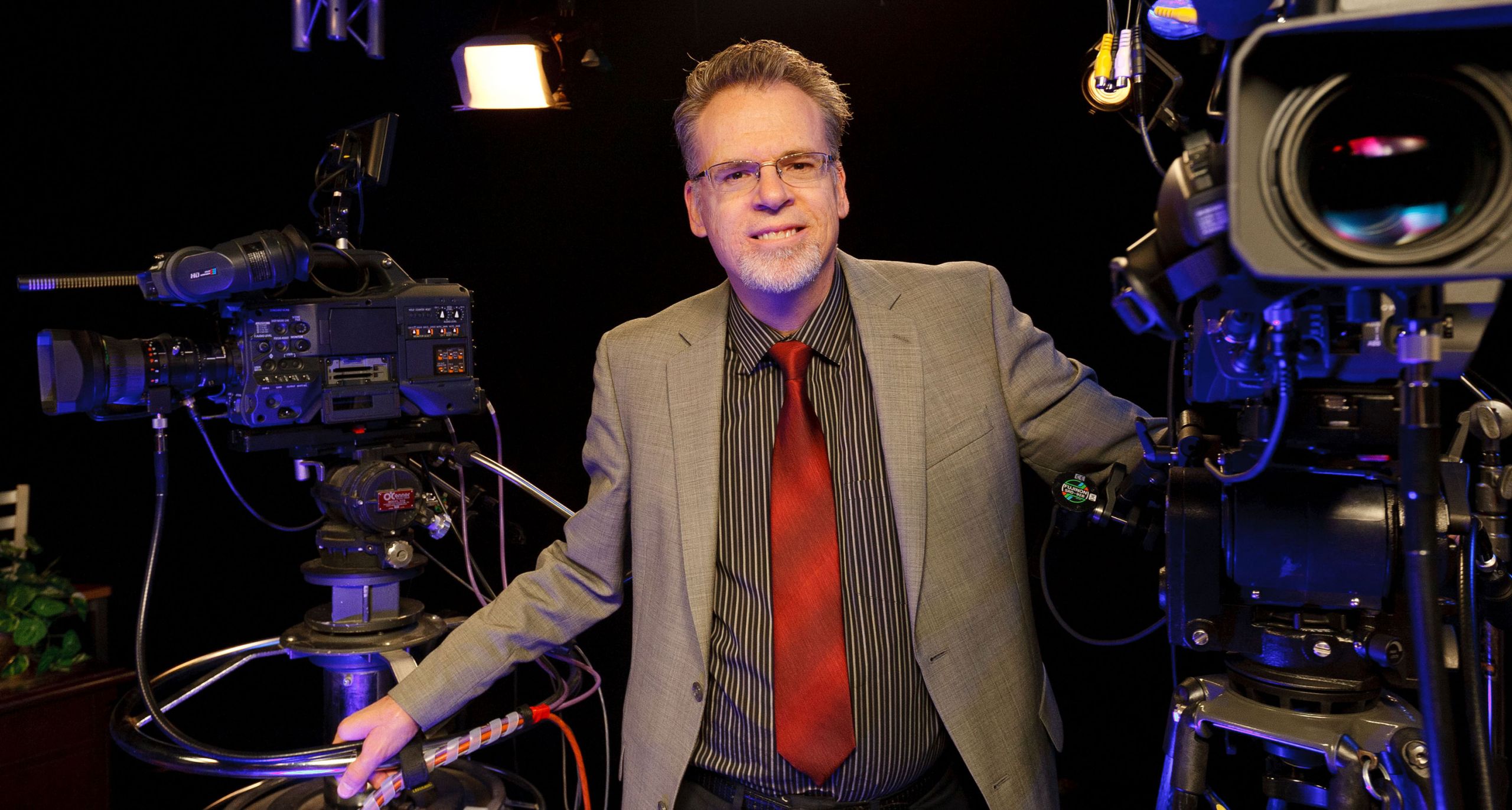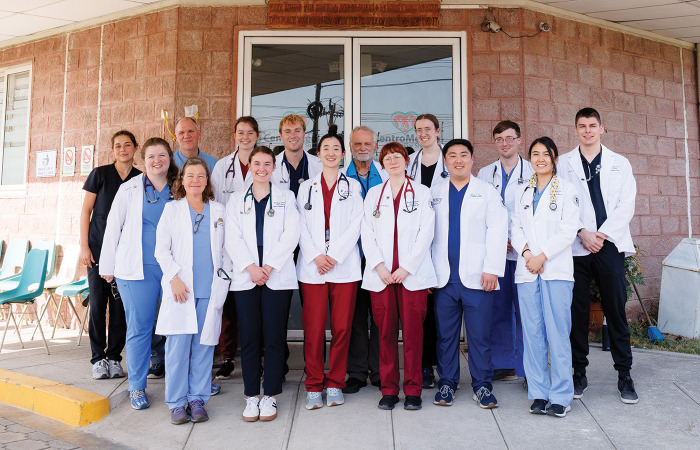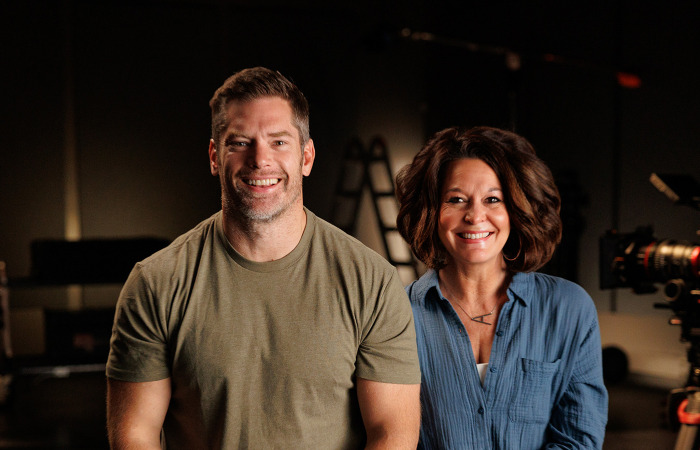Liberty University’s new Center for Cinematic Arts was launched this spring, with courses in screenwriting, motion picture directing and cinematography. This new program offers students the opportunity to gain real-world experience in a hands-on, product-driven education model.
Executive Director Stephan Schultze is actively involved in the film industry and remains in high demand, particularly in cinematography and screenwriting.
Schultze did his undergraduate work at Appalachian State University and graduate studies at Northern Arizona University. Before coming to Liberty, he was the founding director of The Zaki Gordon Institute, a film school in Sedona, Ariz., that trains hundreds of new filmmakers for careers in the industry.
After a short-lived career in advertising, Schultze decided to pursue his real passion for making movies. His desire to develop his writing and photography talent naturally fit within the structure of the film industry. His first job was in Gaffney, S.C., working on The Abyss. He started as a Production Assistant, but by the time the filming was completed, he had moved to Los Angeles and into the camera department. He quickly moved up the ranks to become Director of Photography. In between films, he began focusing on screenwriting.
Schultze learned filmmaking from the best while working on projects directed by James Cameron, Steven Spielberg and Ron Underwood. He has worked in every possible aspect of the industry, including major motion pictures (Tremors, The Abyss, and Henson Productions), television (Drew Carey Show, HBO, and Showtime), music videos, commercials, industrial videos and countless independent films, including The Lesser Evil (1998), which he co-authored and co-produced with Jeremy Levine (MGM).
As an educator, Schultze holds high expectations for Liberty’s new film school. His passion for art and for spreading the Christian message drives him to put forth his absolute best and expect the same from students.
“God’s first action was to create. He is creative and so arts should represent the spirit of creativity and the beauty of God, and in so doing it ought to represent the qualities that exist in that relationship, and that quality ought to exceed the expectations of the marketplace. Simply put, the stories, technology, production, sound design and deliverables should be competitive with mainstream media.”
The program is designed using a cohort system that will allow students to make contacts, creating a lifetime of support in their film career. Students take three core courses in filmmaking as part of their GNED (general education) requirement in their first two years at Liberty. At the end of the students’ sophomore year, they start the application process to continue in the Cinema major. Candidates will spend their junior and senior years fully immersed in filmmaking.
“The most important connection you’ll make here, at Liberty, is the relationships with the people you’re with,” Schultze told students at an information session last fall. “If I was doing this in a business curriculum, those are your contexts – if not for life, for the start of your career. It’s important to form those relationships and make them work for you.”
All Cinematic majors will graduate with their own short film, a polished screenplay, a business plan for their script, and production experience using all the technology currently being employed in the industry.
“It’s important to remember that students are entering into the film ‘industry,’ a very competitive industry where they will need to be businesspeople as well as filmmakers,” Schultze said.
Students will learn a wide range of practical knowledge to use in the field, gaining experience in testing and choosing equipment, casting, music and sounds, screenwriting and pre- and post-production.
Schultze said $1 million of equipment has already been ordered to jumpstart the program. Liberty will eventually have three sound stages and the program will be fully high-definition in both production and post-production.
“For me, I’m seeing a great opportunity,” Schultze said. “I’m not looking at retro-fitting a film school that exists … I’m looking at those ideas and players that have a futuristic vision of what a film school ought to be. We have designed a curriculum that helps student outcomes reach that marker.”
- For more information, visit Liberty’s page on Cinematic Arts.




